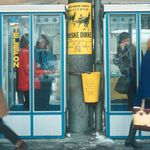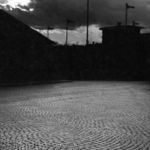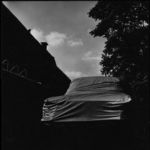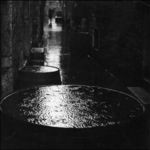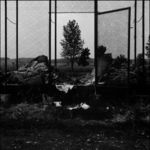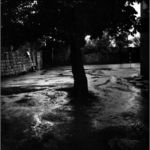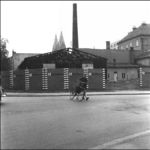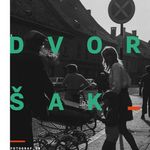Ivan Dvoršak
IVAN DVORŠAK, Photographer and Graphic Designer
UGM | Maribor Art Gallery, Strossmayerjeva ulica 6
Opening: Friday, 9 October 2015 at 19:00
Ivan Dvoršak’s great retrospective exhibition offers an insight into the creative life of an exceptional photographer and graphic designer whose body of works has been comprehensively evaluated for the first time. The exhibition’s main focus are images selected largely from the artist’s estate recently acquired by Maribor Art Gallery with the support of the Slovenian Ministry of Culture. The exhibition comprises around 120 black and white photographs ranging from the beginning of the 1960s to the mid-1980s (including forty original photographs on plywood panels) and a selection of Dvoršak's graphic design works.
IVAN DVORŠAK (1934–2013) was one of the most prominent Slovene photographers from the second half of the 20th century and a renowned graphic designer. His work visibly influenced the Slovenian and Yugoslav visual art space and his photography from the 1970s are on par with contemporary world trends of his time.
He developed his devotion to photography at the beginning of the 1960s and was one of the most active members of Fotoklub Maribor as well as one of the main protagonists of the Maribor Circle. He was also awarded the title of Candidate Master of Photography by the Yugoslav Photographic Association and was presented with the Artiste Fiap distinction by the FIAP (Fédération Internationale de l'Art Photographique). He was the first member of the Maribor Circle (1971–1974) to form a distinctive artistic expression and thus had great influenced on fellow members.
His interest for everyday scenes and structured surfaces, which might be conceived as parallel to German subjective photography, predominated in his photography of the 1960s. Motifs of city outskirts with empty, silenced spaces, often with a hint of industry, where people are present only through their absence, drew Dvoršak's attention in the 1970s. High earth embankments, walls, scaffolds, and meshes suggest a limited way of communication, whereas the grey and black colour range increases the feeling of hopelessness. In his photographic images, it is common to discover a large variety of visual accents and the inclusion of various visual ways of communication, such as signs, boards, signposts, street signs, etc.
Likewise important are Dvoršak's series or rather sequential photographs, which often involve the same motif from different perspectives or viewing angles and refer to the gradual, but inevitable passing of time. Some very taciturn works, yet reduced in shading, that were created on the basis of a precise concept and derived from banal aesthetic motifs can be placed alongside the American New Topographic movement. The triptych Divan and the sequential series of twelve images titled Garages are considered some of the highlights of Dvoršak's artistic creation.
Professionally, Ivan Dvoršak worked as a graphic designer, with respect success and respect from his peers. He designed numerous corporate visual identities and logotypes for various institutions and he was often awarded for his visual solutions. In graphic design, he was noted for clear concepts, refined forms, and adequate symbolic language. His graphic design work also included photography. He frequently collaborated with Matjaž Bertoncelj, Vladimir Toš, and Peter Vernik.
Curator: Andreja Borin
Professional advisors: Stojan Kerbler and Petra Černe Oven
Exhibition intervention: Aleksandra Vajd
Exhibition design: Andreja Borin and Simona Šuc
Visual communication: Matej Koren Studio
PRESS RELEASE
Supported by:
http://www.mk.gov.si/http://www.maribor.si/podrocje.aspx?id=0&langid=1033http://www.dem.si/en-gb/
http://www.impol.com/http://www.talum.si/en/http://www.fotoklub-maribor.com/http://www.svetavladar.si/
Vernissage supported by:
http://www.radgonske-gorice.si/en/
